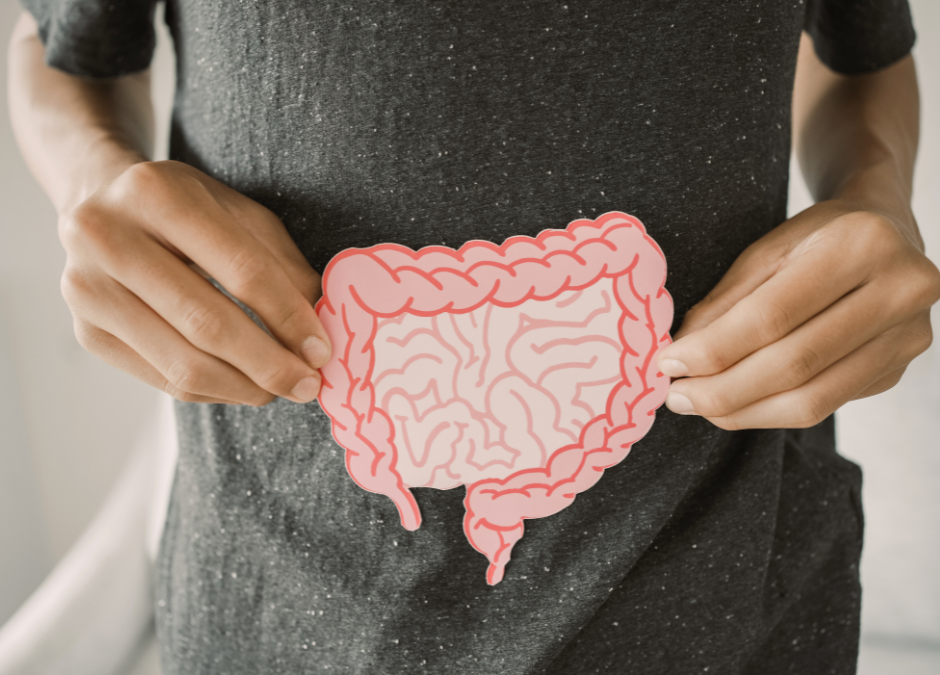Historically, the gut and the brain were believed to be isolated systems, each with their distinct functions and minimal interaction. Years of research, however, have shattered this misconception.
We now know that the gut and the brain are intimately connected through a complex network known as the gut-brain axis. This bidirectional communication system not only bridges the emotional and cognitive centers in the brain with intestinal functions but also highlights how our mental well-being can influence digestive health and vice versa.
Let’s dive into the gut-brain connection, how it works and the implications it holds for our overall health.
The Gut-Brain Axis
During embryonic development, neural cells differentiate into two groups: one group forms the central nervous system (the brain and spinal cord), while the other group forms the digestive system. This second group gives rise to a unique nervous system known as the enteric nervous system, which governs the functions of the gastrointestinal tract. Although these systems diverge in their destinations, they are intricately linked through a sophisticated network of biochemical and neurological pathways.
The gut-brain axis facilitates a two-way communication channel between the central nervous system and the enteric nervous system. This means that your emotions, thoughts, and even brain chemistry can significantly impact your digestive health. Conversely, an unhealthy gut can contribute to issues such as anxiety, depression, and other mental health challenges.
The Mind-Gut Connection
Often, physical dysfunctions like digestive issues have underlying psychological and even spiritual components. A prime example of this link is constipation. While conventionally treated with medications like Restoralax or Laxaday, constipation can also be seen through a metaphysical lens. Feeling “stuck” in life often mirrors the sensation of being physically stuck due to irregular bowel movements. This correlation underscores the interconnectedness of the mind and body.
Common Gut Health Concerns
Understanding Constipation
Constipation goes beyond the mere physical aspect of not eliminating waste daily. It encompasses a sense of discomfort and stagnation. Metaphysically, constipation can symbolize feeling unable to move forward in life. To address this, it’s crucial to consider both physical and emotional factors.
Common causes of constipation include:
- Poor fiber intake: Aiming for 25-30 grams of fiber and incorporating 9-12 servings of low-sugar fruits and vegetables can aid in regular bowel movements.
- Inadequate hydration: Drinking a minimum of 2 liters of water per day supports proper digestion.
- Magnesium deficiency: Magnesium plays a role in muscle relaxation, including the muscles of the digestive tract.
- Gut bacterial imbalance: A lack of diversity and quantity in gut bacteria can lead to digestive issues.
- Unhealthy eating habits: Consuming too many processed and “white/beige” foods, along with trigger foods like dairy and gluten, can contribute to constipation.
- Stress and emotional factors: Mental stress can manifest physically, affecting bowel movements.
To address constipation, consider monitoring your bowel habits, increasing water intake, incorporating movement, and evaluating your diet. Consulting a healthcare professional is essential for a comprehensive approach.
Decoding Diarrhea
On the other end of the spectrum lies diarrhea, characterized by loose and watery bowel movements. This condition can be accompanied by anxiety about leaving home and navigating public spaces due to the urgency it brings. Diarrhea, like constipation, showcases the interconnectedness of emotional and physical well-being.
Common causes of diarrhea include:
- Stress and anxiety: High stress levels can disrupt digestive function.
- Dietary factors: Excessive sugar, coffee consumption on an empty stomach, and inadequate fiber intake can contribute to diarrhea.
- Trigger foods: Dairy, gluten, eggs, citrus, spice, and fatty foods can exacerbate symptoms.
- Underlying medical conditions: Diarrhea may signal an underlying health issue.
To manage diarrhea, monitoring bowel habits, identifying stressors, and considering a temporary BRAT diet (Banana, Rice, Apple sauce, Toast) can be helpful. Staying hydrated and working with a healthcare professional is crucial for addressing the root causes.
Gas and Bloating
Gas and bloating are physical manifestations of discomfort, and interestingly, they are often linked to emotional turmoil. The abdomen’s distention can mirror the emotional weight we carry, further illustrating the gut’s connection to the mind.
Common causes of gas and bloating include:
- Stress and emotions: Emotional distress can trigger physical symptoms like bloating.
- Dietary factors: Rapidly increasing fiber intake, unhealthy gut bacteria, carbonated drinks, and trigger foods can lead to bloating.
- Eating habits: Eating too quickly, using straws, and chewing gum can introduce excess air into the digestive system.
- Hormones: Fluctuations in hormones can impact digestion.
To address gas and bloating, cultivating mindful eating habits, ensuring healthy gut bacteria (like including our very own probiotic, Foundations), and eliminating trigger foods can make a significant difference. Working with a healthcare provider and considering lifestyle changes are essential steps.
Understanding the gut-brain connection is a powerful tool for optimizing both physical and mental health. Digestive issues can be a mirror reflecting our inner state, encouraging us to address both the physical and emotional aspects of our lives. Contact us if you need some more guidance on navigating this intricate relationship.
